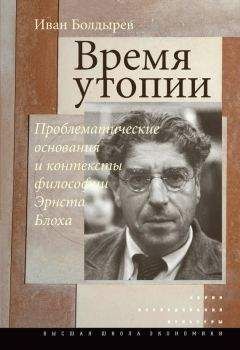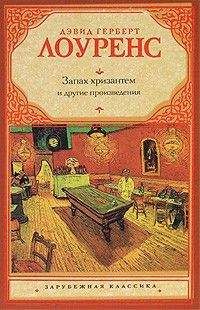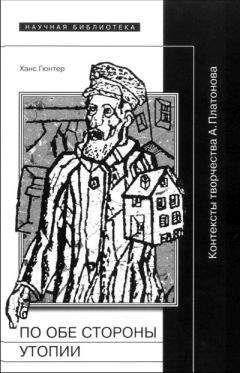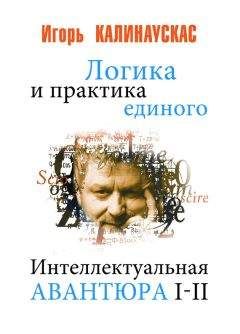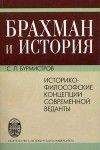Дэвид Лоуренс - Английский с Дэвидом Г. Лоуренсом. Тень в розовом саду / D. H. Lawrence. The Shadow in the Rose Garden
“Then I’m not stopping here (тогда я здесь не останусь),” he said. “Are you coming with me (ты идешь со мной)?”
She rose mutely, and they went out of the room (она безмолвно поднялась, и они вышли из комнаты). Adams had not noticed (Адамс не заметил).
In a few moments they were in the street (через несколько секунд они были на улице).
“What the hell do you mean?” he said, in a black fury (что, черт возьми, это значит? – спросил он в черной ярости; hell – ад, преисподняя).
She went at his side, in silence, neutral (она шла рядом с ним, в молчании = молчаливая, безучастная; neutral – нейтральный; безразличный, безучастный).
“That great hog, an’ all,” he added (вот ведь огромный боров, – прибавил он; an’ = /диал./ and; and all – /разг./ и так далее, и всё такое прочее).
Then something about her mouth was pitiful to him. He did not understand, but he felt she must have her reasons.
“Then I’m not stopping here,” he said. “Are you coming with me?”
She rose mutely, and they went out of the room. Adams had not noticed.
In a few moments they were in the street.
“What the hell do you mean?” he said, in a black fury.
She went at his side, in silence, neutral.
“That great hog, an’ all,” he added.
Then they went a long time in silence through the frozen, deserted darkness of the town (потом они шли долгое время в молчании сквозь промерзшую, пустынную тьму города). She felt she could not go indoors (она почувствовала, что не может войти в дом; indoors – внутри дома, в помещении). They were drawing near her house (они приближались к ее дому).
“I don’t want to go home,” she suddenly cried in distress and anguish (не хочу идти домой, – вдруг воскликнула она в горе и страдании). “I don’t want to go home.”
He looked at her (он посмотрел на нее).
“Why don’t you (почему ты не хочешь)?” he said.
“I don’t want to go home,” was all she could sob (не хочу домой, – вот и всё, что она смогла промолвить, рыдая; to sob – рыдать; всхлипывать; говорить, всхлипывая от рыданий).
He heard somebody coming (он услышал, как кто-то идет).
“Well, we can walk a bit further,” he said (что ж, мы можем пройти немного дальше; to walk – идти, ходить /пешком/; гулять).
Then they went a long time in silence through the frozen, deserted darkness of the town. She felt she could not go indoors. They were drawing near her house.
“I don’t want to go home,” she suddenly cried in distress and anguish. “I don’t want to go home.”
He looked at her.
“Why don’t you?” he said.
“I don’t want to go home,” was all she could sob.
He heard somebody coming.
“Well, we can walk a bit further,” he said.
She was silent again (она снова замолчала). They passed out of the town into the fields (они вышли из города в поля). He held her by the arm – they could not speak (он держал ее под руку – они не могли говорить).
“What’s a-matter?” he asked at length, puzzled (что стряслось/в чем дело? – спросил он наконец, озадаченный; matter – вещество; дело, вопрос; the matter – неприятное дело, неприятность; length – длина; протяженность; длительность; at length – детально; наконец).
She began to cry again (она снова начала плакать).
At last he took her in his arms, to soothe her (наконец он обнял ее: «взял ее в свои руки», чтобы успокоить). She sobbed by herself, almost unaware of him (она всхлипывала, словно была одна, почти не замечая его; by oneself – самостоятельно; в одиночестве).
“Tell me what’s a-matter, Elsie (скажи мне, в чем дело, Элси),” he said. “Tell me what’s a-matter – my dear – tell me, then (скажи мне, что случилось… милая… ну скажи же…; dear – дорогой, милый; дорогая, милая /тж. в обращении/) —”
He kissed her wet face, and caressed her (он целовал ее мокрое лицо и ласкал ее). She made no response (она никак не отвечала; response – ответ, отклик; реакция). He was puzzled and tender and miserable (он был озадачен, нежен и несчастен).
She was silent again. They passed out of the town into the fields. He held her by the arm – they could not speak.
“What’s a-matter?” he asked at length, puzzled.
She began to cry again.
At last he took her in his arms, to soothe her. She sobbed by herself, almost unaware of him.
“Tell me what’s a-matter, Elsie,” he said. “Tell me what’s a-matter – my dear – tell me, then —”
He kissed her wet face, and caressed her. She made no response. He was puzzled and tender and miserable.
At length she became quiet (наконец она утихла). Then he kissed her, and she put her arms round him (тогда он поцеловал ее, и она обхватила его), and clung to him very tight, as if for fear and anguish (и прижалась к нему очень крепко, будто от страха и страданий). He held her in his arms, wondering (он держал ее в руках = обнимал ее, ничего не понимая; to wonder – удивляться; интересоваться, желать знать; задаваться вопросом).
“Ted!” she whispered, frantic (Тед! – жарко прошептала она; frantic – неистовый, яростный). “Ted!”
“What, my love?” he answered, becoming also afraid (что, любовь моя/любимая? – спросил он, тоже начиная бояться; afraid – испуганный; боящийся).
“Be good to me,” she cried (будь добр ко мне! – воскликнула она). “Don’t be cruel to me (не будь жесток ко мне).”
“No, my pet,” he said, amazed and grieved (конечно, лапочка, – сказал он, изумленный и опечаленный; pet – любимое домашнее животное; баловень, любимец; /разг./ лапочка, лапушка; to amaze – изумлять, поражать; to grieve – огорчать, печалить). “Why (отчего же)?”
“Oh, be good to me,” she sobbed (о, будь добр ко мне, – всхлипывала она).
And he held her very safe, and his heart was white-hot with love for her (и он обнимал ее очень бережно, и сердце его раскалилось добела от любви к ней; safe – безопасный; находящийся в безопасности; осторожный; white-hot – раскаленный добела). His mind was amazed (ум его был изумлен). He could only hold her against his chest that was white-hot with love and belief in her (он только и мог прижимать ее к груди, раскаленной добела от любви и веры в нее). So she was restored at last (и она наконец оправилась; to restore – возвращать на место; возвращать в прежнее состояние, восстанавливать).
At length she became quiet. Then he kissed her, and she put her arms round him, and clung to him very tight, as if for fear and anguish. He held her in his arms, wondering.
“Ted!” she whispered, frantic. “Ted!”
“What, my love?” he answered, becoming also afraid.
“Be good to me,” she cried. “Don’t be cruel to me.”
“No, my pet,” he said, amazed and grieved. “Why?”
“Oh, be good to me,” she sobbed.
And he held her very safe, and his heart was white-hot with love for her. His mind was amazed. He could only hold her against his chest that was white-hot with love and belief in her. So she was restored at last.
III
She refused to go to her work at Adams’s any more (она отказалась снова выходить на работу на /фабрике/ Адамса). Her father had to submit and she sent in her notice – she was not well (ее отец вынужден был подчиниться, и она подала заявление /об уходе/ – ей нездоровилось; to have to – быть должным, обязанным /сделать что-л./; to send in – подавать /заявление/; to send – отправлять, посылать; notice – извещение, уведомление; well – здоровый; выздоровевший). Sam Adams was ironical (Сэм Адамс был ироничен). But he had a curious patience (но он обладал удивительным терпением). He did not fight (он не стал бороться).
In a few weeks, she and Whiston were married (через несколько недель они с Уистоном поженились; to marry – жениться, выходить замуж; женить, выдавать замуж). She loved him with passion and worship (она любила его со страстью и поклонением), a fierce little abandon of love that moved him to the depths of his being (с пылким порывом любви, что волновал его до глубин души; fierce – свирепый, жестокий; неистовый, сильный; пылкий; abandon – импульсивность, энергия), and gave him a permanent surety and sense of realness in himself (и давал ему постоянную уверенность и ощущение реальности в себе). He did not trouble about himself any more (о себе он больше не беспокоился; to trouble – беспокоить/ся/, тревожить/ся/): he felt he was fulfilled and now he had only the many things in the world to busy himself about (он чувствовал, что реализовал себя, и теперь перед ним было множество дел в мире, которыми нужно заниматься; to fulfill – выполнять, осуществлять; реализовать или развить свои потенциальные способности; реализовать себя). Whatever troubled him, at the bottom was surety (что бы ни тревожило его, в основании /его жизни/ была уверенность). He had found himself in this love (он нашел свое призвание в этой любви).
She refused to go to her work at Adams’s any more. Her father had to submit and she sent in her notice – she was not well. Sam Adams was ironical. But he had a curious patience. He did not fight.
In a few weeks, she and Whiston were married. She loved him with passion and worship, a fierce little abandon of love that moved him to the depths of his being, and gave him a permanent surety and sense of realness in himself. He did not trouble about himself any more: he felt he was fulfilled and now he had only the many things in the world to busy himself about. Whatever troubled him, at the bottom was surety. He had found himself in this love.
They spoke once or twice of the white stocking (они говорили один или два раза о белом чулке).
“Ah!” Whiston exclaimed (ах! – восклицал Уистон). “What does it matter (какое это имеет значение; to matter – иметь значение)?”
He was impatient and angry, and could not bear to consider the matter (он был раздражен и зол и терпеть не мог обсуждать это дело; impatient – нетерпеливый; раздраженный, беспокойный; to bear – носить, нести; терпеть, выносить /боль, несчастье и т. д./; терпеть, мириться /с чем-л./). So it was left unresolved (поэтому оно было оставлено нерешенным).
She was quite happy at first, carried away by her adoration of her husband (она была весьма счастлива поначалу, охваченная обожанием мужа). Then gradually she got used to him (затем постепенно она к нему привыкла). He always was the ground of her happiness (он всегда был основой ее счастья; ground – земля, грунт; основание), but she got used to him, as to the air she breathed (но она к нему привыкла, как к воздуху, которым дышала). He never got used to her in the same way (он так и не привык к ней таким же образом; never – никогда; ни разу; /эмоц. – усил./ нисколько; way – путь; дорога; образ действия).
